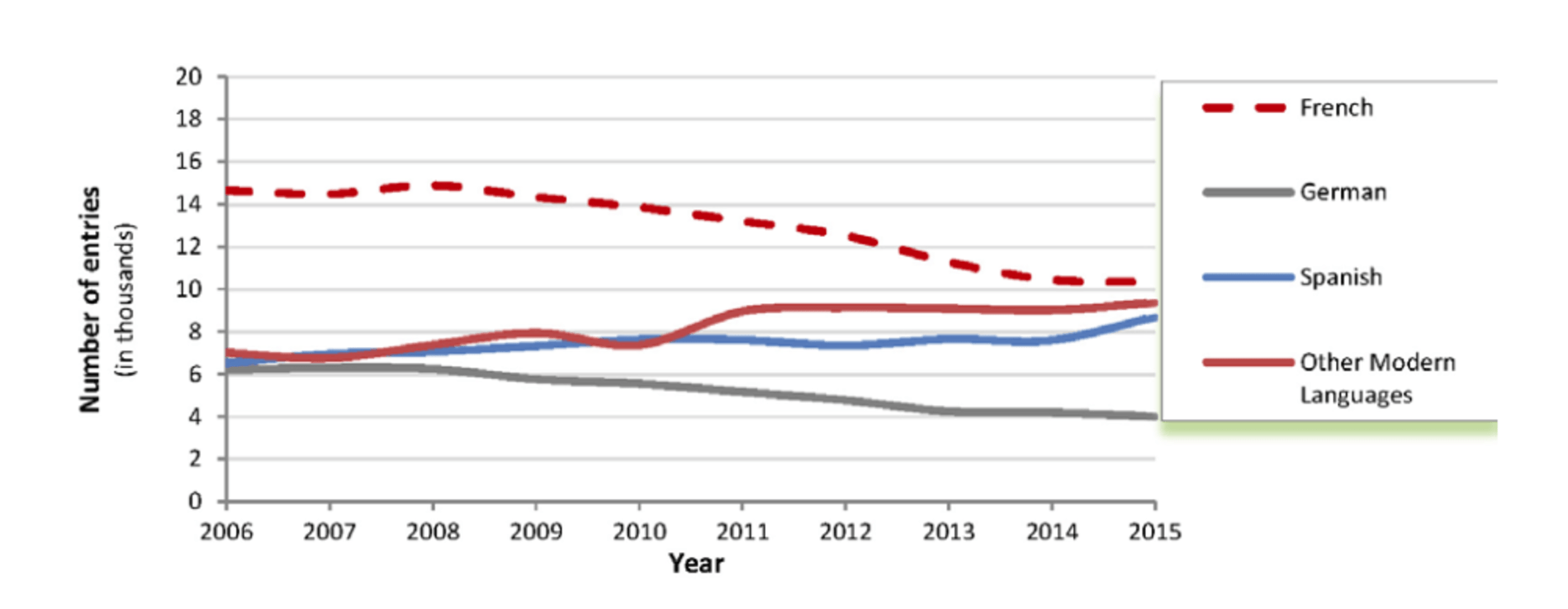
Dr Martin Hurcombe, Reader in French Studies, University of Bristol
The decline in the number of students of modern languages from GCSE to degree level is an annual lament. Only 10,328 pupils in the UK took French at A Level in 2015 and although Spanish enjoyed a rise in entries at A Level of 14%, German continued its steady decline.
As Vicky Gough, schools adviser at the British Council, noted last year, the study of French and German at A Level has declined by more than 50% since 1999.
Similar patterns can be observed at GCSE where entries for French, for example, declined by 40% between 2005 and 2015. The rise in interest in Arabic and Portuguese has not offset the overall trend towards the marginalisation of language learning in Britain’s secondary schools, and most notably those in the state sector.

A Level language entries, 2006-2015. JCQ
It’s hard for language learners and teachers to remain optimistic in this climate, and harder still with widespread Euroscepticism and the possibility of the UK voting to leave the European Union in a referendum on June 23.






